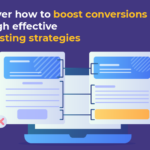In today’s competitive online marketplace, having a robust e-commerce website is not enough. If you want your products to stand out and attract customers, implementing effective Search Engine Optimization (SEO) strategies is essential. This ultimate guide will provide you with everything you need to know about optimizing your e-commerce website for search engines.
What is SEO for E-commerce?
SEO for e-commerce refers to the process of optimizing an online store to increase its visibility in search engine results pages (SERPs). By improving your site’s ranking, you can attract more organic traffic, ultimately leading to increased sales and conversions. Effective SEO combines both technical and creative elements to improve user experience and ensure your products are easily discoverable.
Why is SEO Important for E-commerce Websites?
- Increased Visibility: A well-optimized site ranks higher in search results, making it easier for potential customers to find your products.
- Higher Conversion Rates: Improved user experience and relevant content lead to higher engagement and sales.
- Cost-Effective Marketing: Unlike paid advertising, organic traffic from SEO is free, providing a higher return on investment in the long run.
- Building Trust: Websites that rank higher are often perceived as more credible and trustworthy.
Essential SEO Strategies for E-commerce Websites
1. Keyword Research
Keyword research is the foundation of any successful SEO strategy. It involves identifying the words and phrases your target audience uses to search for products similar to yours.
- Use Tools: Leverage tools like Google Keyword Planner, Ahrefs, or SEMrush to find relevant keywords with good search volume and low competition.
- Long-Tail Keywords: Focus on long-tail keywords, as they are less competitive and often have higher conversion rates (e.g., “women’s running shoes” vs. “shoes”).
2. Optimize Product Pages
Your product pages are crucial for conversions and SEO. Here’s how to optimize them effectively:
- Unique Product Descriptions: Write compelling and unique descriptions that highlight the benefits and features of each product. Avoid duplicate content, as it can harm your rankings.
- High-Quality Images: Use high-resolution images and optimize them by including alt text with relevant keywords.
- Title Tags and Meta Descriptions: Create descriptive and keyword-rich title tags and meta descriptions that entice users to click through to your site.
3. Improve Site Structure
A well-organized website helps search engines crawl and index your pages more efficiently. Here are some tips to improve your site structure:
- Logical Navigation: Ensure your website has a clear and logical navigation structure. Use categories and subcategories to organize products effectively.
- URL Structure: Use clean and descriptive URLs that include relevant keywords (e.g.,
www.example.com/category/product-name).
4. Mobile Optimization
With the increasing use of mobile devices for online shopping, ensuring your e-commerce site is mobile-friendly is essential for SEO.
- Responsive Design: Use a responsive design that adapts to different screen sizes, providing an optimal user experience on all devices.
- Page Speed: Optimize your site’s loading speed, as slow-loading pages can lead to high bounce rates and negatively impact your rankings. Use tools like Google PageSpeed Insights to analyze and improve your speed.
5. Leverage Technical SEO
Technical SEO refers to optimizing your site’s backend to help search engines crawl and index it more effectively. Key elements include:
- XML Sitemap: Create and submit an XML sitemap to search engines to ensure all your pages are indexed.
- Robots.txt File: Use a robots.txt file to control which pages search engines can crawl, helping to prevent indexing of duplicate or irrelevant content.
- Structured Data: Implement schema markup to enhance your search listings with rich snippets, making your products more visually appealing in SERPs.
6. Content Marketing
Creating high-quality, relevant content can drive organic traffic and improve your SEO rankings. Here are some ideas:
- Blog Posts: Write informative blog posts related to your products or industry. This can establish your authority and attract potential customers.
- Product Guides: Create buying guides or tutorials that help customers make informed decisions and showcase your products.
7. Build Backlinks
Backlinks from reputable sites can improve your site’s authority and rankings. Here’s how to build backlinks:
- Guest Blogging: Write guest posts for industry-related blogs and include links back to your site.
- Collaborate with Influencers: Partner with influencers in your niche who can promote your products and link to your site.
8. Monitor and Analyze Performance
Regularly track your SEO performance to identify areas for improvement. Use tools like Google Analytics and Google Search Console to monitor:
- Organic Traffic: Keep an eye on your traffic sources and identify which pages attract the most visitors.
- Conversion Rates: Analyze how well your product pages convert and make necessary adjustments based on user behavior.
Conclusion
Implementing effective SEO strategies is vital for the success of your e-commerce website. By focusing on keyword research, optimizing product pages, improving site structure, and leveraging content marketing, you can enhance your online visibility and attract more customers. Remember, SEO is a long-term investment, so stay patient and persistent in your efforts. With the right strategies, your e-commerce business can thrive in the competitive online marketplace.
FAQs
- How long does it take for SEO to work on an e-commerce website?
SEO is a long-term strategy, and it can take several months to see significant results. Consistent effort is key. - Do I need to hire an SEO expert for my e-commerce site?
While hiring an expert can be beneficial, many e-commerce owners successfully manage SEO themselves with the right resources and dedication. - What are some common SEO mistakes to avoid for e-commerce sites?
Common mistakes include neglecting mobile optimization, using duplicate content, and failing to optimize title tags and meta descriptions. - Is it necessary to have a blog on my e-commerce site for SEO?
While not mandatory, having a blog can significantly enhance your SEO efforts by providing fresh content and improving keyword targeting. - Can social media impact my e-commerce SEO?
While social media signals don’t directly affect SEO rankings, having a strong social media presence can drive traffic to your site and increase brand awareness.







